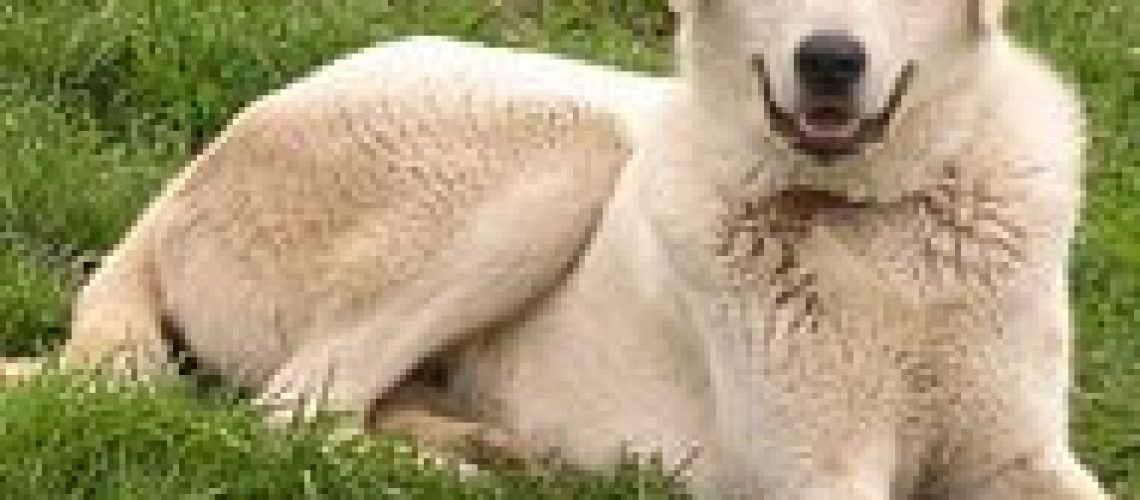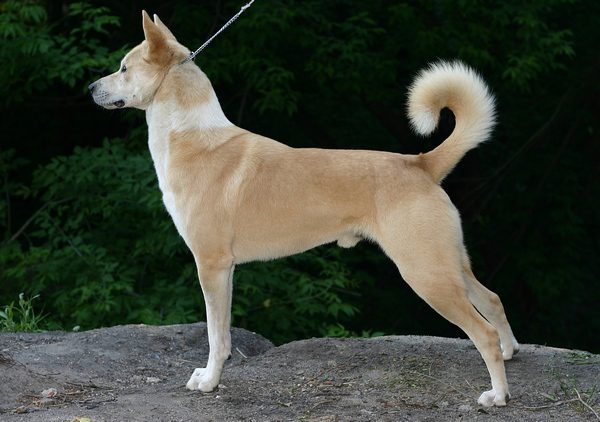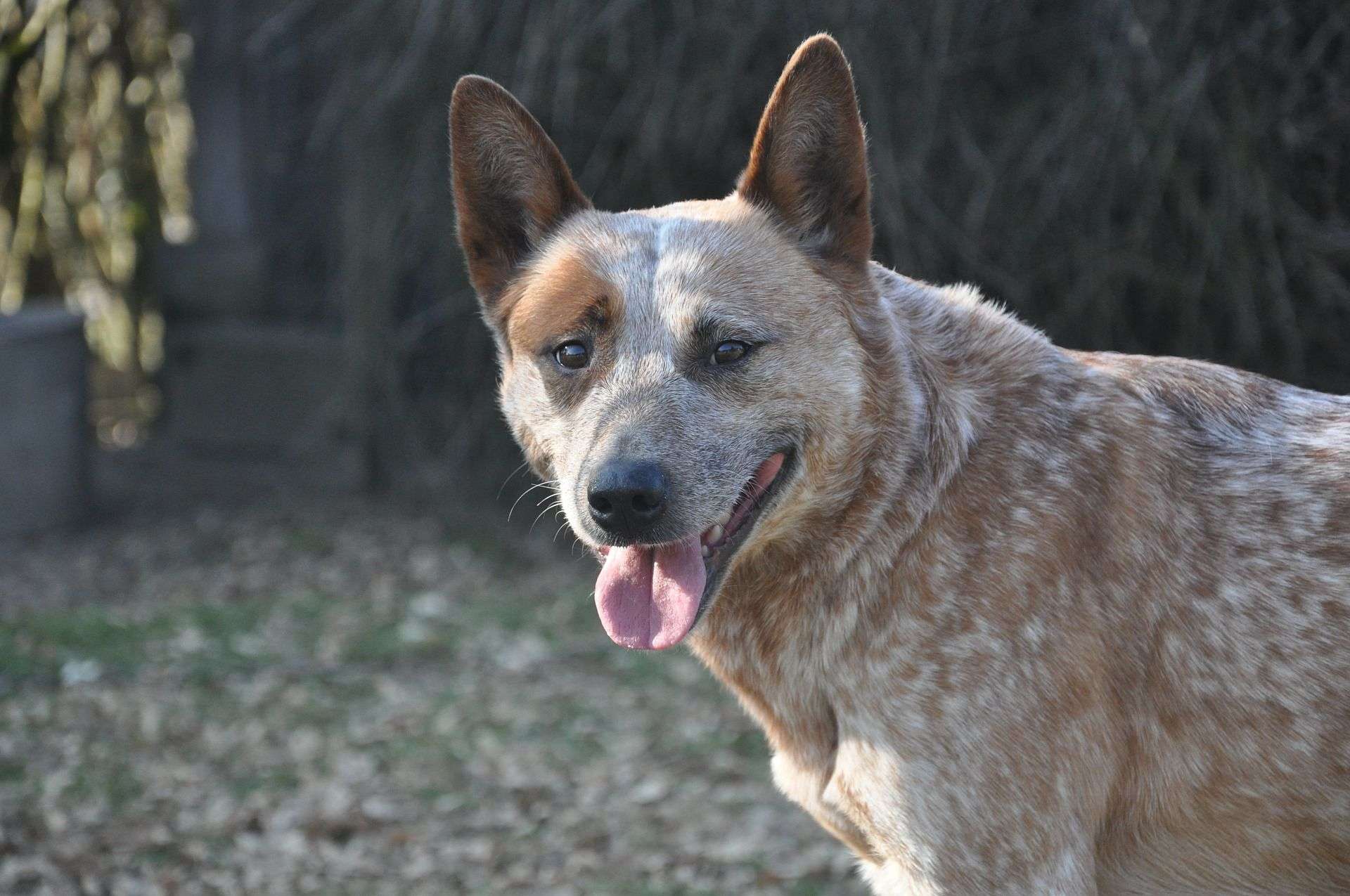Key Takeaways:
- Akbash dogs are large, powerful, and independent livestock guardian dogs originally from Turkey.
- They have a protective nature and are known for their loyalty and dedication to their flock or family.
- Akbash dogs require proper socialization and training from an early age to prevent any aggressive behavior towards strangers or other animals.
- Regular exercise is essential for Akbash dogs to keep them physically and mentally stimulated.
- Proper grooming is necessary as they have a thick double coat that requires regular brushing to prevent matting and keep them clean.
Are you curious about the fascinating world of dog breeds? If so, get ready to discover the Akbash! This incredible breed is not only beautiful but also possesses unique characteristics that make them stand out from the pack. Understanding the ins and outs of caring for an Akbash can be incredibly rewarding, whether you're a potential owner or simply interested in learning more about these amazing creatures. So, let's delve into the world of Akbash dogs and uncover their distinctive traits and how to provide them with the best care possible. Get ready to embark on an adventure that will leave you amazed by the wonders of this remarkable breed!
What is an Akbash Dog? Unique Characteristics of this Breed
Appearance
An Akbash Dog is a large and powerful breed that stands out for its unique appearance. They have a strong, muscular build with a deep chest and a broad head. Their most distinctive feature is their beautiful white coat, which helps them blend in with their surroundings when they are working as livestock guardians.
These dogs have a double coat, with a dense undercoat and longer, coarser guard hairs on top. This coat provides insulation and protection from the elements. The Akbash Dog's ears are medium-sized and drop down, giving them an attentive and alert expression.
Size
Akbash Dogs are considered to be large-sized breeds. Males typically stand between 28 to 34 inches tall at the shoulder and weigh between 90 to 130 pounds. Females are slightly smaller, measuring between 27 to 31 inches in height and weighing between 75 to 105 pounds.
Their size makes them imposing figures, which can be intimidating to potential predators or intruders. However, despite their large size, they are known for their gracefulness and agility.
Characteristics
- Akbash Dogs are known for their independent nature. They were bred to make decisions on their own while guarding livestock in remote areas without human supervision.
- They have a strong protective instinct and will go to great lengths to protect their family or flock from any perceived threats.
- These dogs are highly intelligent and quick learners. They can assess situations quickly and make appropriate decisions based on the circumstances.
- Akbash Dogs have excellent hearing abilities, allowing them to detect sounds from afar.
- They have a calm and gentle demeanor with their family, but can be wary of strangers.
Akbash Dogs are a unique breed with their striking appearance, large size, and independent nature. They possess a strong protective instinct and have the intelligence to make quick decisions. Their calm and gentle nature makes them great companions for their families while still being able to fulfill their traditional role as livestock guardians.
The Origins of Akbash Dogs and their Traditional Uses
Origins
The Akbash Dog is an ancient breed that originated in Turkey. They were primarily developed to guard livestock, such as sheep and goats, from predators like wolves and bears. The breed's history can be traced back thousands of years, with evidence of similar dogs being used by nomadic shepherds in Central Asia.
Akbash Dogs were bred for their ability to work independently in harsh environments, making decisions that would protect the flock without direct human intervention. This self-reliance made them highly valued by Turkish shepherds who needed trustworthy guardians for their livestock.
Traditional Uses
In their traditional role as livestock guardians, Akbash Dogs would live with the flock they were protecting. They formed a strong bond with the animals under their care and would use their size, strength, and intimidating presence to deter potential predators.
These dogs were trained not to harm the livestock but rather to drive away or confront any threats. Their white coat helped them blend in with the flock during the day while providing visibility at night when most predators are active.
Even though modern farming practices have changed over time, Akbash Dogs continue to be used as working dogs on farms around the world. Their exceptional guarding abilities make them invaluable in protecting livestock from predators even today.
Akbash Dog Temperament: How they Interact with Humans and Other Animals
With Humans
Akbash Dogs are known for their loyalty and devotion to their human family. They form strong bonds with their owners and are protective of them. While they can be reserved with strangers, they are generally gentle and affectionate towards those they trust.
These dogs thrive on human companionship and enjoy being part of the family. They are happiest when they have a job to do or when they feel like they are contributing to the well-being of their loved ones.
With Other Animals
Akbash Dogs have a natural instinct to protect, which extends to other animals in their care. They typically get along well with other dogs if properly socialized from an early age. However, due to their guardian nature, they may be less tolerant of unfamiliar dogs or animals that pose a potential threat.
It is important to note that Akbash Dogs have a strong prey drive, which means they may not be suitable for households with small pets such as cats or rabbits unless carefully introduced and supervised.
The Akbash Dog's temperament is characterized by loyalty, protectiveness, and a strong bond with its human family. With proper socialization, these dogs can coexist peacefully with other animals but may require careful introductions and supervision due to their guardian instincts.
Caring for an Akbash Dog: Grooming, Exercise, and Nutrition Tips
Grooming
The Akbash Dog has a thick double coat that requires regular grooming to keep it in good condition. Weekly brushing will help remove loose hair and prevent matting. During shedding seasons, more frequent brushing may be necessary.
Bathing should only be done as needed using a mild dog shampoo to avoid stripping the natural oils from their coat. Regular nail trims, ear cleaning, and dental care are also essential parts of their grooming routine.
Exercise
Akbash Dogs are an active breed that requires regular exercise to keep them physically and mentally stimulated. Daily walks or runs, playtime in a securely fenced yard, and interactive games can help meet their exercise needs.
It is important to note that Akbash Dogs have a slower growth rate compared to some other breeds, so excessive exercise during puppyhood should be avoided to prevent potential joint problems.
Nutrition
A balanced diet is crucial for the overall health and well-being of an Akbash Dog. High-quality dog food formulated for large breeds is recommended to ensure they receive the necessary nutrients.
Feeding guidelines provided by the manufacturer should be followed, but adjustments may be needed based on the individual dog's activity level and metabolism. It is important to monitor their weight and adjust the portion sizes accordingly to prevent obesity.
Caring for an Akbash Dog involves regular grooming, providing ample exercise opportunities, and feeding a nutritious diet tailored to their needs. These practices will help keep them healthy, happy, and thriving as part of your family.
Common Health Issues in Akbash Dogs: Prevention and Management
Common Health Issues
- Hip Dysplasia: This is a genetic condition where the hip joint doesn't develop properly. Regular exercise on appropriate surfaces and maintaining a healthy weight can help reduce the risk of hip dysplasia.
- Bloat (Gastric Dilatation-Volvulus): This is a life-threatening condition where the stomach twists upon itself. Feeding smaller meals throughout the day instead of one large meal and avoiding exercise immediately after meals can help prevent bloat.
- Eye Problems: Akbash Dogs may be prone to certain eye conditions, such as progressive retinal atrophy (PRA) and cataracts. Regular eye examinations by a veterinarian can help detect and manage these issues.
Prevention and Management
Regular veterinary check-ups are essential for monitoring the overall health of an Akbash Dog. Vaccinations, parasite prevention, and dental care should be part of their routine healthcare.
Providing a balanced diet, regular exercise, and maintaining a healthy weight can help prevent certain health issues. It is also important to provide a safe and secure environment to minimize the risk of accidents or injuries.
If any health concerns arise, it is crucial to seek veterinary attention promptly. Early detection and proper management can significantly improve the outcome for many health conditions.
Training and Socialization for Well-Behaved Akbash Dogs
Training
Akbash Dogs are intelligent but can have an independent streak, so consistent training from an early age is important. Positive reinforcement methods using rewards such as treats or praise work best with this breed.
Basic obedience commands like sit, stay, come, and leash walking should be taught early on. Training sessions should be kept short but frequent to maintain their interest and focus.
Socialization
Socializing an Akbash Dog is crucial to ensure they grow up to be well-rounded and confident adults. Exposing them to various people, animals, sights, sounds, and environments from a young age will help them become more accepting of new experiences.
Puppy classes or obedience classes that include controlled interactions with other dogs can be beneficial in teaching them appropriate social behavior. Continued socialization throughout their lives will help maintain their positive interactions with others.
Training and socialization are vital components of raising a well-behaved Akbash Dog. Consistent training using positive reinforcement methods and early socialization experiences will help them become confident, obedient, and friendly members of the family.
Adaptability of Akbash Dogs to Different Living Environments
Living Environment
Akbash Dogs can adapt to different living environments, but they thrive best in homes with spacious yards or rural areas where they have room to roam. They are not well-suited for apartment living due to their size and need for exercise.
It is important to provide them with a secure fence as they have a natural instinct to explore and protect their territory. Additionally, their white coat may require extra care in hot climates to prevent overheating.
Climate
Akbash Dogs have a thick double coat that provides insulation against cold weather. They are generally well-suited for colder climates but may struggle in extremely hot or humid conditions.
In warmer climates, it is important to provide shade, access to fresh water at all times, and avoid strenuous exercise during the hottest parts of the day. Regular grooming can also help keep them comfortable by removing excess hair and preventing matting.
Akbash Dogs can adapt well to various living environments as long as their needs for space, exercise, and climate considerations are met. Providing them with a suitable environment will ensure they lead happy and fulfilling lives as beloved companions or working dogs.
In conclusion, Akbash dogs are large and protective breeds known for their loyalty and intelligence. They require proper training, socialization, and regular exercise to ensure they lead happy and healthy lives.
What are the pros and cons of the Akbash dog?
The akbash dog is known for being independent and vigilant in its temperament. While it is intelligent, training can be challenging because of its tendency to be self-reliant. This breed also has a strong instinct to protect and may bark or become aggressive towards perceived threats.
Is an Akbash a good family dog?
Akbash dogs, despite their large size, are actually gentle and loving animals that make great companions. They are well-suited for families with children and are known for their calm demeanor. However, they can be wary of strangers and may display aggression towards unfamiliar dogs that enter their territory.
What is the personality of an Akbash dog?
The Akbash dog is known for its suspicious and protective nature, making it independent and difficult to train as a family pet. These dogs have a tendency to bark excessively due to their guarding instincts.
What health issues do Akbash dogs have?
Some of the health issues that can affect this breed include orthopedic problems like osteochondritis dissecans and hip dysplasia, epilepsy, cardiomyopathy, and autoimmune thyroiditis. Additionally, they may also be prone to conditions like gastric torsion (bloat), umbilical hernias, cruciate ligament injuries, and cancers such as osteosarcoma and lymphoma.
What is the greediest dog in the world?
Beagles are notorious for being extremely greedy and will do anything to get their paws on food. These playful dogs have been observed stealing food from plates, knocking over trash bins to search for scraps, and raiding nearby cupboards.
Are Akbash dogs easy to train?
Before being integrated into a family, it is essential for the Akbash to undergo proper socialization and training. This breed was specifically bred to be self-reliant thinkers, thus they do not respond favorably to traditional obedience training methods. An Akbash handler who comprehends the breed and can utilize innovative approaches to training is most suitable.

















